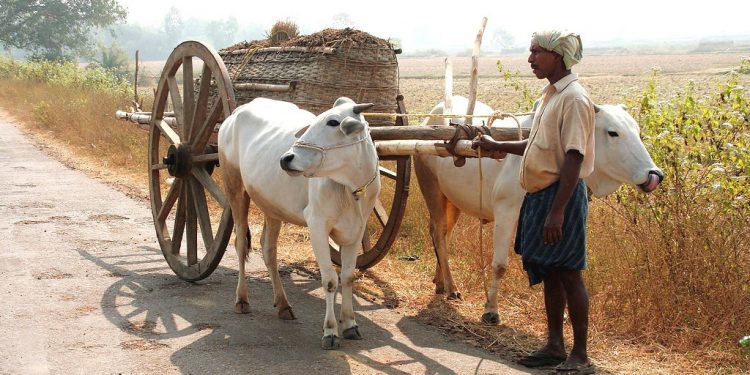Bhawanipatna: Bullock carts, once synonymous with rural life, have apparently become extinct. They have been replaced in most places by tractors and other vehicles. These days, bullock carts are rarely seen in the rough terrain of villages.
An essential part of rural life, the bullock cart had social impact other than its professional use like carrying agricultural and other products.
It was a means of travel from one village to another. People used to set up thatched roofs on the carts to protect themselves from the whims of nature.
During marriages, the bullock carts used to be decorated with flowers and festoons to transport the bride and groom from one place to another. Even the bullocks were decorated with colourful paper strips coiled around their horns, bells around their necks and multi-coloured hand-woven fabrics around their huge bodies.
More importantly, bullock carts are eco friendly. They prevent pollution. The harsh sound which a tractor produces creates sound pollution. As a tractor runs on diesel there is environment pollution also. In comparison, the bulls with bells around their necks make rhythmic sounds as they move producing a soothing and sweet effect on the ears.
“During our childhood, we used to run after bullock carts loving the sound they produced while rolling down the road. The sound emanated from the iron rings fitted to the clog of the wheels had its own sweetness; but now it was replaced by the harsh noise of motorcycles and four-wheelers, even in our villages,” observed Shantanu Kumar Behera, a farmer and resident of Rishigaon in Bhawanipatna block.
“More importantly bullock carts never polluted the atmosphere like most vehicles do today, he added.
Batakrushna Thakur, a farmer of Bandopala village under the same Bhawanipatna block, said a day will come when “our grandchildren and great grandchildren will have to refer to the pages of books to see a bullock cart.”
But then there are reasons also why the bullock carts are making way for faster vehicles. To meet the demands of modern life, the slow, sluggish pace of the carts will not suffice.
“In the past, timbers were available for free. Now, there are restrictions on cutting trees. Hence the quantity of timber needed to make a bullock cart is unavailable. So slowly they are going into extinction,” opined another farmer.
Yes, bullock carts may disappear, but its romanticism will certainly linger for long. That is for sure.
PNN







































